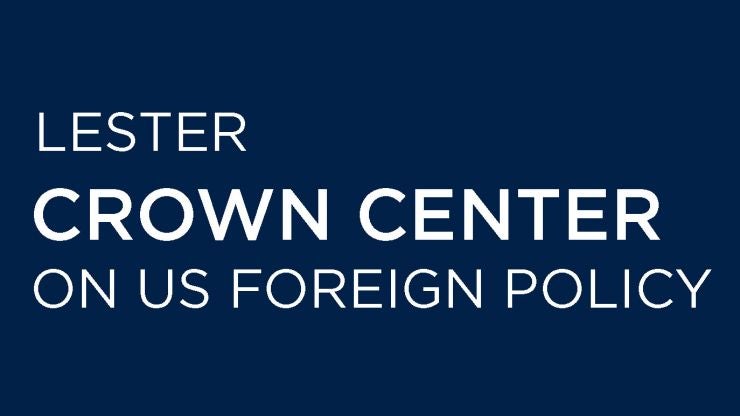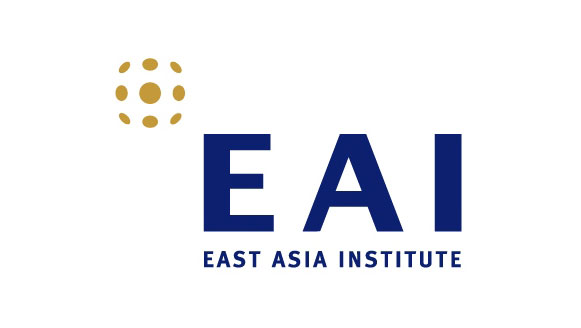The 2006 Chicago Council survey focused on U.S. and international public opinion on the rise of China and India and its implications for the international order and U.S. foreign policy.
The United States and the Rise of China and India
Introduction
The Chicago Council on Global Affairs, working in partnership with the Asia Society, focused its 2006 study of U.S. and international public opinion on the rise of China and India and its implications for the international order and U.S. foreign policy. The survey includes polling undertaken by The Chicago Council in the United States, China, and India, with parallel surveys carried out by the East Asia Institute in South Korea and the Lowy Institute for International Policy in Australia. The comparative analysis of American, Chinese, Indian, South Korean, and Australian public attitudes on a wide range of issues comprises the major part of this report. In a departure from previous Chicago Council studies, there is no separate report that focuses exclusively on the U.S. data. The U.S. findings have been integrated into this report in both the first chapter, which assesses the overall American outlook on the world and in the subsequent chapters, which address issues related to the rise of China and India.
The Chicago Council has additionally under- taken a separate collaborative project with the Japan Economic Foundation that includes a parallel Japanese survey. The results of the Japan survey will be released in November 2006 in a report that highlights the comparison of American and Japanese opinion with special reference to China and India.
Summary Findings
Part I: The U.S. Worldview
The Global U.S. Position
More than three years after the toppling of Saddam Hussein’s regime in Iraq, raging violence in the country continues to dominate the headlines. Despite the controversy surrounding U.S. engagement in Iraq, Americans overall are not turning away from their broad internationalist stance, but remain committed to an active international role. They continue to be most concerned about terror- ism and nuclear proliferation as well as job security. Concern about global warming and energy supplies is on the rise. They see the United States as the world’s most influential country by far and prefer it to remain that way. They recognize the rising influence of India and, especially, China. While slightly more Americans think the United States and China are mostly rivals than partners, most favor friendly cooperation and engagement with China, and most say they want to work together with China and India on solving a number of specific problems.
International Engagement
Most Americans want to pursue their foreign policy goals chiefly through cooperative and multilateral means, with a large role for the United Nations. Even so, they continue to support a strong military presence around the world and appear willing to take unilateral action if necessary in cases where they believe the stakes are high.
Economics and Trade
Americans put a very high priority on protecting the jobs of American workers. They support globalization overall, but their feelings about international trade are somewhat mixed, and they believe that some countries are practicing unfair trade. They support agreements to lower trade barriers as long as there are protections for workers who lose their jobs, but are generally opposed to free trade agreements with specific countries.
Global Challenges
Americans are concerned about and support action to address global problems such as environmental degradation and human rights violations.
Part II: China and India in a Rising Asia
The Rise of China
The Chinese believe their country is a significant and growing power in the world and show strong support for its economic and military rise. They do not appear to be particularly alarmed by potential threats to vital interests except for the spread of epidemic disease, and they consider foreign policy goals related to economic security to be the most important. While people in other countries are more modest in their assessment of China’s power and influence, they recognize its growing status and appear to be mostly comfortable with China’s economic ascent, though Americans show some wariness. While there is some nervousness about China converting its growing economic power into military power, relations with China are viewed positively, and other countries want to work together with China to solve regional and world problems.
U.S. economy.
The threat of epidemics such as AIDs and avian flu is considered a critical threat by more Chinese than any other assessed threat. Disruption in energy supply is the only other threat considered critical by a majority.
People in the United States, India, and South Korea rate China’s influence in the world today lower than do the Chinese themselves. While they see it rising in ten years, all countries see the influence of the United States remaining well ahead.
Americans are divided about whether China becoming significantly more powerful economically would be mainly positive or negative. Indians are also somewhat divided, but view it mostly positively. South Koreans clearly think this would be positive. However, majorities in the United States and South Korea and a plurality in India view the growth of Chinese military power as mainly negative.
The Asian countries surveyed all have warm feelings toward China, though Americans give it a cool rating. Only Australians trust China to act responsibly in the world, and more Americans, South Koreans, and Indians think China practices unfair trade than think the opposite.
Asian countries surveyed have a positive view of China’s role in resolving key problems facing Asia, while a plurality of Americans have a negative view. Overall, China’s relations with other countries are seen as at least staying the same if not improving. The U.S.-China relationship is seen as more of a rivalry than a partnership on both sides, while the China-India relationship is seen as more of a partnership than a rivalry on both sides. A majority of Americans think China and India are rivals.
The Rise of India
Indians are bullish on their country’s role in Asia and the world and on its prospects for the future, but still look to the United States as the world’s leader. While their self-assessment is more modest than that of the Chinese, Indians already see themselves as more influential in the world than China and as gaining on the United States. India is in many respects well regarded by people in the United States and in Asia and is recognized as a country on the rise. India is, however, still in the shadow of China and to a lesser extent Japan.
Japan, South Korea, and Australia
Japan
The view of Japan differs widely among the surveyed countries. While historical legacy casts a shadow on Japan’s relations with China and South Korea, views among Americans, Indians, and Australians are much more positive.
South Korea
Attitudes toward South Korea among surveyed nations are somewhat mixed, though tend toward the positive.
Australia
Australia is viewed positively by all countries surveyed, with the warmest feelings from Americans. The country is not viewed as very influential in Asia, though Australians believe they have more influence than others believe they have.
The United States: The View from Asia
The countries surveyed regard the United States as the most important player in the world and in Asia today and for the next ten years. However, they are concerned about the reliability and responsibility of the United States and do not believe that U.S. power will remain dominant over the longer term. Many, especially the Chinese, are uncomfortable with the U.S. military presence in the region.
Chinese, Indians, and South Koreans all see U.S. influence today as substantially above any other country and do not predict much of a decline in influence over the next ten years, even as others gain in influence. In fifty years, a majority in all countries (China, India, South Korea, and the United States) believes another nation will become as powerful or surpass the United States in power.
Great Power Relations in Asia (China, India, the United States, and Japan)
The emergence of China and India as Asian powers does not, so far, appear to be raising great anxiety among Americans, Indians, and Chinese about peace and stability in the region. The greatest tensions exist in the China-Japan relationship, but there is not a feeling that the problems between the countries cannot be resolved. The role of the United States as an important player in the region is not in doubt, and while there is not a great deal of trust between countries, there is strong desire to work together to resolve regional and global challenges.
Regional Troublespots
Potential conflicts between China and Taiwan, India and Pakistan, and North and South Korea do not generate great concern among most respondents in this study.
Part III: Addressing Global Challenges
Nuclear Proliferation
Majorities in the United States, Australia, and India consider the possibility of unfriendly countries becoming nuclear powers as a critical threat. One-half of South Koreans and less than one-third of Chinese are of the same opinion. Preventing the spread of nuclear weapons is considered a very important foreign policy goal by a majority in all these countries.
Environment and Epidemic Diseases
Global warming is a big concern in all countries surveyed, with South Koreans and Australians showing the greatest sense of alarm. Only small percent- ages believe the evidence for global warming is so weak that no action with economic costs should be taken. Americans, Australians, and Chinese agree that action should be taken now even if it involves substantial economic costs. Indians prefer to take a lower-cost, more gradual approach.
Concern about the threat of AIDs, avian flu, and other potential epidemics is very high in Asian countries surveyed, especially China, where it is the top threat. Americans are the least concerned, with less than one-half seeing this as a critical threat.
Energy
Disruption in energy supply ranks near the top of the list of critical threats in all countries surveyed except India. Securing adequate supplies of energy is also considered a very important foreign policy goal by majorities in all these countries. Americans, South Koreans, Chinese, and Indians say competition over vital energy resources like oil and gas will be a somewhat or very likely source of conflict between major powers in Asia in the future. Large majorities in the United States, China, and India also say it is somewhat or very important that their countries work together to reduce competition over energy resources. Nevertheless, Chinese and Indians think countries should have the right to go to war with another country to preserve access to vital resources such as energy. Americans are split on the issue.
Economic Security, Globalization, and Trade
Protecting jobs is a very high concern in all countries surveyed.
Human Rights
- Globalization is seen as mostly good by majorities in all countries surveyed. Majorities saying this in China and South Korea are extremely high, while the majority in India is small. Americans and Australians fall in between.
- Majorities in all countries surveyed think international trade is good for their countries’ economies, consumers, companies, and their own standards of living. While Chinese, Indians, and South Koreans also think international trade is good for creating jobs in their countries and
- Americans, Chinese, Indians, and South Koreans think the UN Security Council should have the right to authorize force to prevent severe human rights violations such as genocide. All agree further that the UN Security Council has the responsibility to intervene in countries where severe human rights violations such as genocide may be occurring and that it has at least the right if not the responsibility to intervene in the Darfur region of the Sudan (not asked in South Korea).
- Chinese and Americans believe rules against torture should be maintained, while a plurality of Indians think governments should now be allowed to use torture if it may gain information that saves innocent lives. as are American feelings toward the World Bank, multinational corporations, the International Monetary Fund, and the World Court. Chinese have the warmest feelings toward international organizations overall.
- Helping to bring a democratic form of government to other nations is the lowest-ranking foreign policy goal in all countries where the question was asked (the United States, India, South Korea, and Australia).
Multilateralism and the Use of Force
All countries except South Korea, where opinion is split, think their countries should be more willing to make decisions within the United Nations even if they have to go along with a policy that is not their first choice. Majorities in all countries also favor steps to strengthen the United Nations, including giving it the power to regulate the international arms trade, having a standing UN peacekeeping force, giving it authority to go into countries to investigate human rights violations, and creating an international marshals service that could arrest leaders responsible for genocide.







